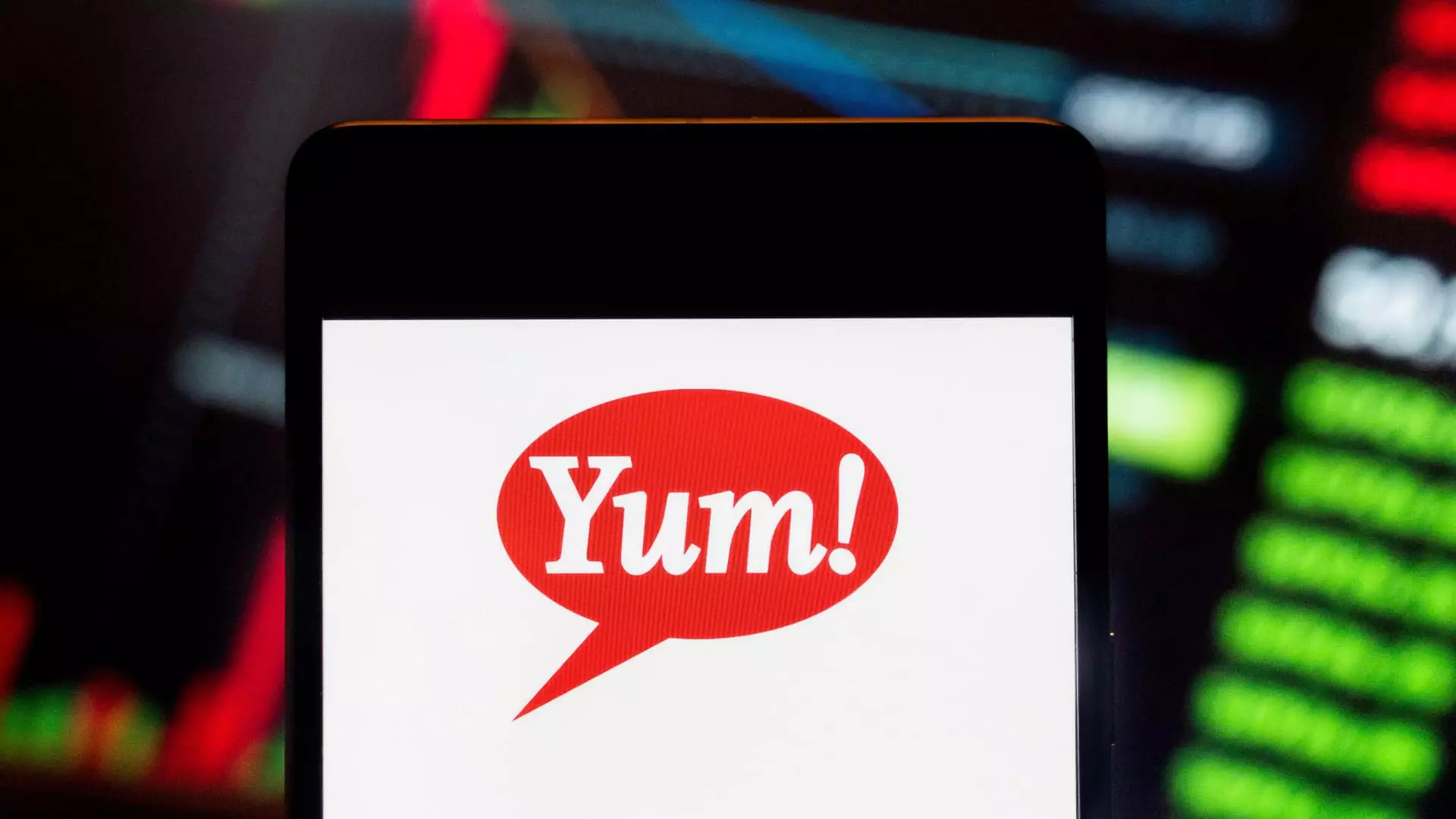Yum Brands, the parent company of well-known fast-food chains KFC, Pizza Hut, and Taco Bell, released its quarterly earnings report on Tuesday, revealing disappointing results that fell short of Wall Street’s expectations. The company’s earnings per share (EPS) came in at $1.37 (adjusted), marginally missing the forecast of $1.41. Moreover, Yum’s revenue for the quarter was reported at $1.83 billion, significantly below the anticipated $1.90 billion. This performance marked a step back, as net income dropped to $382 million from $416 million a year earlier, reflecting the challenges the company has faced in a complex global market.
The results indicate that Yum Brands’ flagship products are struggling in a highly competitive landscape. The company reported a 2% decline in worldwide same-store sales, which was primarily driven by KFC and Pizza Hut’s dismal performance, as both chains experienced a 4% decrease in comparable sales. The weakening sales figures have raised concerns as KFC, notably the second largest market for Yum after China, faces pressures from rival brands such as Popeyes, which recently ascended to the number two spot in the U.S. chicken chain market.
Adding to the woes, KFC experienced a staggering 45% decline in sales in several international markets such as the Middle East, Indonesia, and Malaysia. This downturn can be largely attributed to ongoing political conflicts and a general drop in consumer sentiment. Similarly, Pizza Hut’s situation remains dire, with a 6% contraction in international same-store sales compared to a mere 1% decline in the U.S. market. The pizza chain has resorted to promotional pricing strategies in key international territories like China and India to regain traction.
CEO David Gibbs candidly acknowledged the “complex consumer environment” during a conference call, outlining that the regional sales variations adversely impacted the company’s overall performance. Yum had previously set ambitious long-term targets predicting 5% unit growth, 7% system sales growth, and 8% operating profit growth. However, achieving these objectives seems increasingly challenging in light of prevailing market dynamics.
In an effort to combat these setbacks, Yum Brands plans to pivot its strategy, particularly focusing on value offerings for KFC as the holiday season approaches. This strategy could potentially enable KFC to recapture market share in certain regions. Pizza Hut is also adapting its approach with a heavier reliance on discount promotions to attract price-sensitive consumers in international locations, suggesting a company-wide shift towards value-driven marketing in response to consumer behavior shifts.
On a brighter note, Taco Bell emerged as a noteworthy success story within Yum’s portfolio, posting a 4% increase in same-store sales. The brand has effectively harnessed product innovation and value meal offerings, positioning itself favorably in an industry confronting economic headwinds. Notable product launches, such as Cheesy Street Chalupas and the $7 value meal, have contributed to Taco Bell’s robust performance.
Industry Implications and Future Considerations
The reported performance of Yum Brands serves as a microcosm of broader trends in the fast-food industry, where changing consumer preferences and economic factors can have pronounced effects on revenue. A significant focus on enhancing value perception and adapting to local market conditions will be essential for Yum’s brands as they navigate these turbulent waters. The company’s ability to innovate while simultaneously addressing consumer needs will determine its trajectory in an increasingly competitive landscape.
As industry observers track Yum Brands’ ongoing initiatives and tactical shifts, the company will need to demonstrate resilience and adaptability—qualities that are essential for weathering the fluctuating market conditions and for reigniting growth. The question remains whether the efforts undertaken will be successful in translating into improved sales figures, particularly for KFC and Pizza Hut, which are currently in urgent need of revival.

